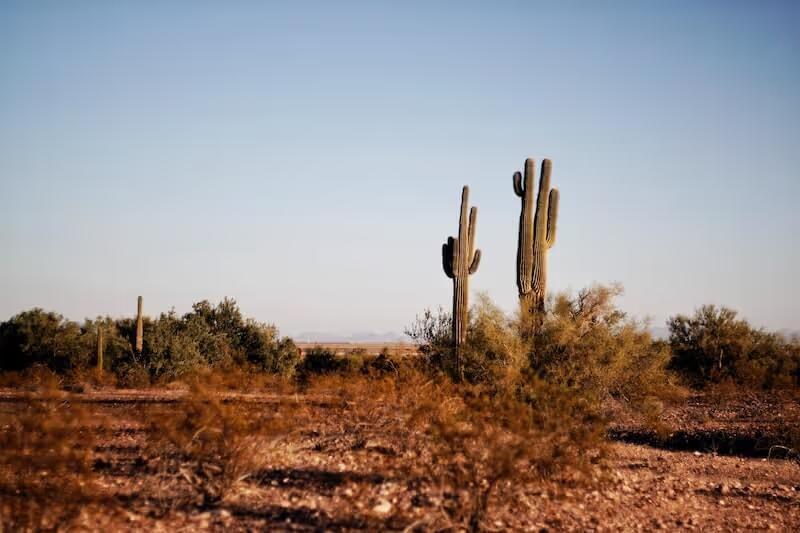Creating a will might not be at the top of your to-do list, but it's one of the most important legal documents you'll ever make. If you live in the state of Washington and have been putting off making your will, here's some good news: creating a will isn't as complicated or expensive as you might think. In many cases, you can even write your own will without an attorney.
Why do you need a Washington State will?
A last will and testament is a legal document that you use to outline your wishes for distributing your assets after you pass away.
Your will is about more than just your possessions — it's about protecting the people you care about most. With a will, you can:
- Choose beneficiaries who will receive your property, financial assets, and family heirlooms.
- Appoint a trusted guardian who will care for your minor children if you pass away.
- Name an executor to manage your estate and carry out the terms of your will during the probate process.
- Leave a lasting legacy by supporting charitable causes you care about.
Ready to make your Washington will but not sure where to start? FreeWill makes it easy. We provide state-specific instructions for executing your will according to Washington State law. Plus, you have unlimited free updates to your documents, forever.
The best part? It’s completely free — we’ll never ask you for a credit card or sell your data. Create your free Washington State will today.
What happens if you die without a will in Washington State?
If you die without a will in Washington, the state's "intestacy" laws determine who receives your property. This means your assets would be distributed based on a predetermined order that prioritizes your closest relatives, starting with your spouse and children, then moving to more distant relatives. If no living relatives can be found, your property goes to the state.
When you don’t have a will, you allow the government to make important decisions about who receives your property and cares for your children. You don’t get to choose a guardian for your minor children, provide resources to take care of pets, or support charitable causes that are meaningful to you. That's probably not what you want for your family or your legacy.
Creating a will puts you in control of these critical decisions and gives you peace of mind knowing your wishes will be known and carried out.
Making your Washington State will: A step-by-step guide
Here are the steps to make your will in Washington:
1. Decide how you’ll create your will
You have several options for making your will in Washington:
- Use an online will maker (like FreeWill): This is often the most convenient and cost-effective option.
- Use a will template: While this might seem economical, a template is fixed and stagnant, so it's risky and more prone to errors.
- Hire an estate planning attorney: Best for complex estates or unusual circumstances.
2. Make sure you meet Washington State will requirements
To make a will in Washington, you must be:
- 18 years or older
- Of sound mind and memory, meaning you understand the implications of the decisions you make in your will
Washington requires your will to be in writing — audio, video, or other digital formats aren't accepted (though electronic wills are technically allowed under specific circumstances). Your will should be typed and printed, not handwritten.
3. List your assets
Take inventory of everything you own:
- Real estate and vehicles
- Bank accounts and financial assets
- Family heirlooms and personal belongings
- Pets (yes, they're considered property under the law!)
- Digital assets (such as domain names, websites, cryptocurrency, etc.)
Need help? Here’s a complete list of all the assets you should include in your will. If you use FreeWill to make your will, we prompt you to include all of this information and provide examples of how to describe your property.
Remember that some assets, like retirement accounts and life insurance policies, pass directly to designated beneficiaries outside of your will. You'll want to handle these non-probate assets separately by contacting the relevant institutions. Check out our guide for naming beneficiaries for non-probate assets.
4. Choose your beneficiaries
A beneficiary is the person or organization you want to receive each asset in your will. When listing beneficiaries in your will, be specific! Include full names and relationships. While your will is personal and doesn’t need to be discussed with anyone, having conversations with your loved ones about your decisions may help prevent confusion and conflict later.
5. Select your executor
Your personal representative (sometimes referred to as an executor) will be responsible for carrying out the wishes indicated in your will after you pass away. Choose someone organized, trustworthy, and willing to take on this important role. It’s a good idea to let your chosen executor you’ve selected them for the role to make sure they’re up for the job. You can name a backup executor too, just in case your first choice is unable to serve.
6. Consider guardians for your minor children
If you have children under 18, naming a guardian for them in your will is extremely important. If you don’t, the Washington probate court will choose someone if something happens to both parents — and it might not be who you would have picked. In your will, you can also leave specific instructions for your child’s care.
7. Execute your will to make it legal
To make your will valid in Washington, you must sign your will in front of two witnesses, and they must sign in front of you. Choose people who meet the following witness requirements:
- Are at least 18 years old
- Are of sound mind
- Won't inherit anything from your will
- Aren't named as your executor
In Washington, you don’t have to notarize your will to make it valid — just your signature and two witness signatures are sufficient. You do have the option to make your will self-proving with a self-proving affidavit, which can save time during the probate process, but it isn't required.
8. Safely store your will
Keep your will in a secure location like a fireproof safe, an estate planning drawer, or with a trusted attorney. Tell your executor and loved ones where to find it and how to access it. Consider keeping other important documents with your will, like:
- Property deeds and titles
- Life insurance information
- Funeral instructions
- Password and login information
9. Keep your will current
Review your will every 3-5 years or whenever major life changes occur, such as:
- Marriage or divorce
- Birth of children or grandchildren
- Moving to a different state
- A significant change in your financial situation (like an inheritance)
- Purchasing a home or other property
- Death of a beneficiary or executor
Do I need a lawyer to make my will in Washington State?
No, Washington law doesn't require you hire an attorney to write your will. However, if you have a complex estate or unusual circumstances, it may be a good idea to consult a professional.
Does a will need to be notarized in Washington?
No, your will doesn’t need to be notarized in Washington to be valid — your signature and two witness signatures are sufficient.
However, you have the option to make your will self-proving with a self-proving affidavit. While not required, a self-proving affidavit signed by you and your witnesses in front of a notary can streamline the probate process by eliminating the need for witness testimony.
Can I change or revoke my will?
Yes, you can revoke or change your will at any time. In Washington, you can do this by:
- Creating a new will that revokes the old one
- Physically destroying the old will
- Making a new document that revokes the will using the same formalities
- Adding a codicil (amendment) for minor changes
How much does a will cost in Washington?
The cost to create a will in Washington varies depending on the method you choose. Here are some options, from cheapest to most expensive:
- Use a free online will-maker, like FreeWill. With today’s technology, it’s never been easier or more affordable to create a legally-binding will online. Using a reputable online will-maker like FreeWill is a cost-effective and user-friendly way to create a legally binding will that suits your needs.
- Use a paid online will provider. Paid will providers charge you a fee to create your will documents using their templates. These one-time will forms might be more expensive than other options, but are often more affordable than hiring a lawyer to create your will.
- Hire a lawyer to draft your will. Hiring a lawyer is the most expensive option but provides the highest level of customization and legal expertise. This is ideal for those with complex estates or specific legal needs.
What happens if I get divorced?
If you get divorced, Washington automatically revokes any rules or instructions (known as provisions) in your will that benefit your former spouse. Nonetheless, it's a good idea to update your will to reflect your new circumstances. This will give you the greatest control over what happens to your assets.
Make your Washington last will and testament
Creating a will is one of the most thoughtful things you can do for your loved ones. It provides clarity, prevents family conflict, and ensures your final wishes are carried out exactly as you want them to be.
If you're ready to create your Washington will, we're here to help. Our online will-making platform guides you through the process step-by-step, ensuring your will is legally valid and reflects your unique wishes. Create your free Washington State will using FreeWill and gain peace of mind knowing you've protected your loved ones and legacy.
Make your free estate plan today

Make your free advance healthcare directive

Make your free durable power of attorney

Make a stock donation today

Make your free revocable living trust










